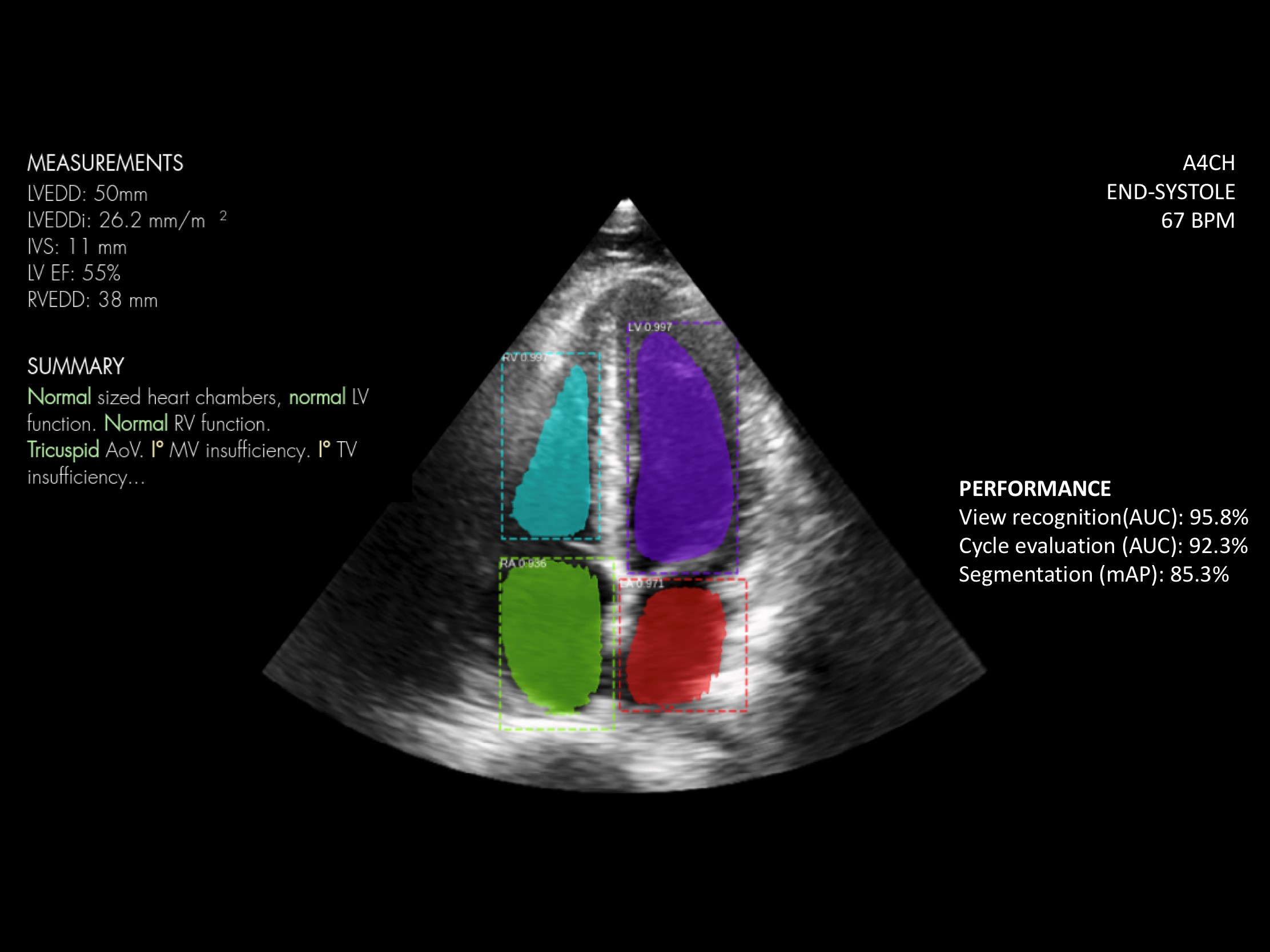Startup of the Week: Ligence
2019
Oct 01
Oct 01

Startup Lithuania continues “Startup of the week” series of articles about most promising Lithuanian startups so let’s read more about Ligence – a startup company which develops machine learning algorithms that are capable of automatically detecting a person’s heart functional and anatomical features from ultrasound images.
What are your competitors and competitive advantages?
Our competition:
Tomtec: medical imaging solution company recently acquired by Philips. Produces automatic segmentation of some of the heart anatomical features. DiaAnalysis: a US based company currently in partnership with GE Healthcare. Ultromics: a UK based startup company using AI to recognise coronary heart disease from ultrasound images. Butterfly Network: a US based company producing state-of-the-art portable ultrasound probes along with their software only available on Apple products.
Our competitive advantages: we are the only company focusing on automation of full heart ultrasound examination protocol which is standard to all countries globally. We possess field specialists as our advisors. We have access to several million heart ultrasound images because we have recently launched a clinical trial in one of the largest hospitals in Lithuania and we are planing to launch clinical trial in a hospital in the Netherlands.
What were the reasons behind coming up with this idea and launching this product?
Heart ultrasound is a very popular heart inspection method currently employed in cardiology. This method is non-invasive and does not produce ionising radiation at all meaning it is safe to use on patients. Even tough it is a cheap method it also has some drawbacks and serious pain points which have not been addressed to this point. It requires a trained and experienced specialist to accurately perform the heart ultrasound examination and the procedure itself requires a lot of manual work. The average waiting time for a patient to get an ultrasound examination is 5 weeks in the European Union. Two of our founders merged their expertises in cardiology and machine learning and decided to automate this procedure. We hope to reduce patient waiting duration down to 2 weeks.
When exactly did you launch, what were the main challenges before launching?
The idea came up on February 2019 and the core team formed on March 2019. Main challenge is financing because the certification of the product is a costly process.
What are your target customers? Both in terms of user profile and geography?
First of all we are targeting large university hospitals in Europe producing more than 10 000 heart ultrasound examinations a year.
What are main challenges while working on this product and how are you overcoming them?
Main challenge at this stage is financing. Young startup is a risky deal.
How are you funded? Do you seek extra funding?
Now we hold on funds won from several different competitions. We seek pre-seed financing to cover our legal fees and certification process.
Please introduce your founders, your core team and your broader team?
Team:
Arnas Karužas, Founder & CEO. Resident physician of cardiology in Kaunas clinics. Publisher of scientific abstracts in European Society of Cardiology, Presidential fellowship for master students 2016/2017, Professional member of European Society for Cardiology, Best poster reward in imaging section in Rome 2016.
Karolis Šablauskas, Foundeer & CTO/Machine learning specialist. Medical doctor at Radboud Medical Center, the Netherlands. Member of Vilnius iGEM team. Gold medal in iGEM competition 2016, grand prize winner in 2017. Chairman of Lithuanian Junior Doctors Association 2018. Professional member of European Society for Cardiology. “AI for Medical Doctors” course lecturer. Founder of grafikai.lt – a startup company offering work schedule solutions with AI for enterprises.
Dovydas Matuliauskas, Co-founder & CFO. Lecturer at Ultrasound Diagnostics Conference. Falling Walls Lab 2019 finalist. Board member of Lithuanian Ultrasound Association. Medical student in Vilnius University.
Prof. MD Jurgita Plisienė, medical advisor. Expert in echocardiography. Lithuanian cardiologist of the year award. Head of the department of Cardiology Diagnostics and Consultation. Professional member of European Society for Cardiology.
Dovydas Verikas, product developer. Medical student in Lithuanian University of Health Sciences.
Laurynas Skrodenis, product developer. Medical student in Lithuanian University of Health Sciences.
Eligija Teleišytė, product developer. Medical student in Lithuanian University of Health Sciences.
Justinas Mileris, IT specialist and product developer. Master of Mathematics in Kaunas University of Technology. Experienced software developer. Creator of ethereum blockchain based platform. Experience in IoT projects.
Justinas Balčiūnas, business developer. Intern at Bayer AG. Medical student in Lithuanian University of Health Sciences.
How has business been so far? Could you share some numbers to illustrate this (users, sales, etc)?
Ligence has not made any sales yet.
Future plans, ambitions? Simply speaking – what’s next?
First year into market entry: 10 university hospitals in Europe using our software in their daily practice.
Second year: 30 large hospitals using software in Europe.
Third year: Abdominal ultrasound automation in progress, 40 hospitals in total are made customers, private practitioners are offered “pay-per-analysis” and are added to our customer list.
Fourth year: 50 hospitals made clients, more than 100 private practitioners are our customers.
In brief, we aim to make heart ultrasonography a quicker examination method and therefore decrease patient waiting lines in Europe. We believe that this technology will allow patients to be diagnosed earlier and therefore
Thank you for your answers!
Follow our previous “Startup of the week” articles here.
